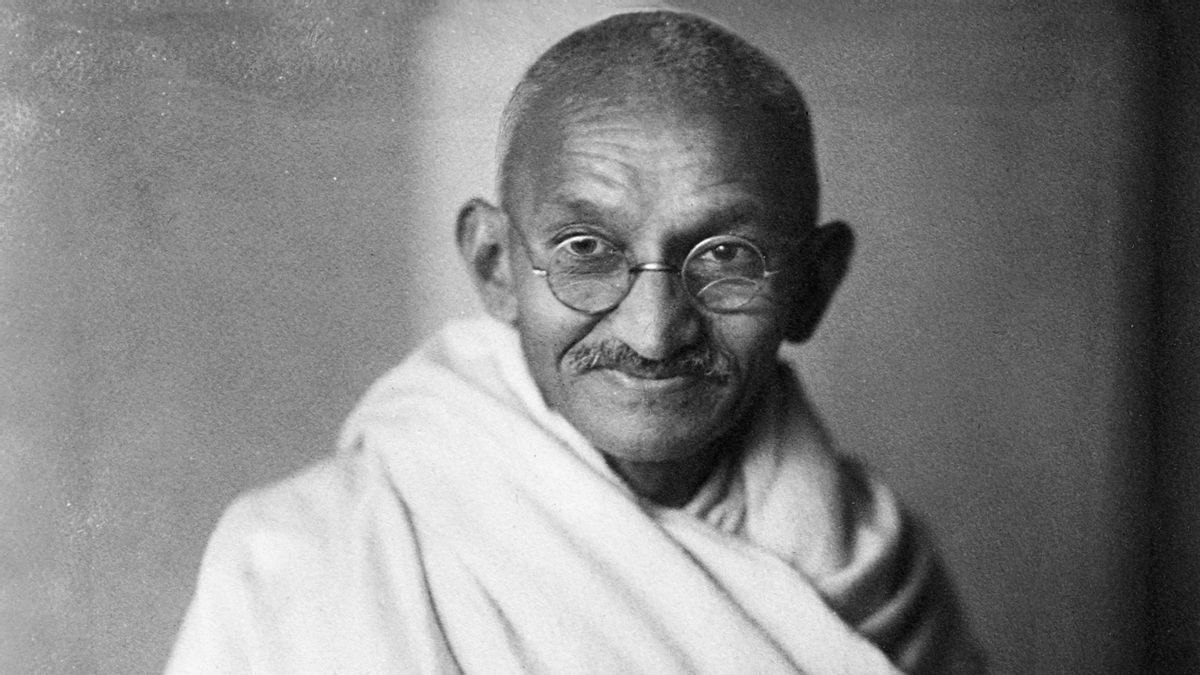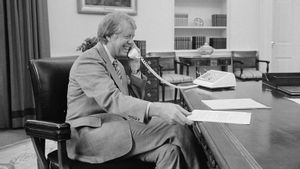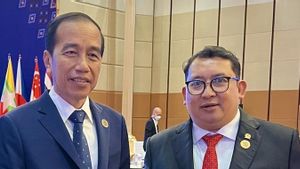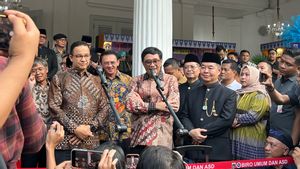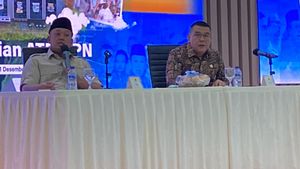JAKARTA - On January 30, 1948, Mohandas Karamchand Gandhi or also known as Mahatma Gandhi, was killed in New Delhi. Gandhi was the political and spiritual leader of India's independence movement who died at the hands of a Hindu extremist.
Born as the son of an Indian official in 1869, Mahatma Gandhi's mother, Waisnawa Gandhi, was deeply religious and she exposed her son to Jainism from the very beginning, a morally strict belief in India that teaches nonviolence.
Gandhi was an unremarkable student. In 1888, he was given the opportunity to study law in England. In 1891, he returned to India but failed to find a regular legal job. He then got a job in 1893 on a one-year contract in South Africa.
Quoting the History page, Saturday, January 30, 2021, after settling in Natal, South Africa, he was subjected to racism and South African laws that restrict Indian labor rights. Gandhi later recalled one incident in which he was kicked out of a first-class train compartment and thrown from the train. Since then, he decided to fight injustice and defend his rights as an Indian and a human.
When his contract expired, he spontaneously decided to stay in South Africa and launched a campaign against a law that would deprive Indians of the right to vote. Gandhi then formed the Indian Natal Congress and drew international attention to the plight of Indians in South Africa.
In 1906, the Transvaal government attempted to further restrict the rights of Indians and Gandhi organized his first campaign of satyagraha or mass civil disobedience. After seven years of protests, he negotiated a compromise deal with the South African government.
In 1914, Gandhi returned to India and lived a life of abstinence and spirituality on the fringes of Indian politics. He supported Britain in the First World War, but in 1919 he organized a new satyagraha in protest at British conscription for Indians. Hundreds of thousands of people answered his calls to protest and in 1920 Gandhi became the leader of the Indian independence movement.
Gandhi then reorganized the Indian National Congress as a political force and organized a massive boycott of British goods, services, and institutions in India. Then, in 1922, he abruptly canceled the satyagraha when violence broke out. One month later, Gandhi was arrested by British authorities for sedition and was found guilty. Gandhi was imprisoned.
After his release in 1924, he led protests by fasting against Hindu-Muslim violence. In 1928, Gandhi returned to national politics when he demanded domination status for India, and in 1930, he staged mass protests against the British salt tax, which cost India's poor people.
In his most famous campaign of civil disobedience, Gandhi and his followers marched to the Arabian Sea, where they made their own salt by evaporating seawater. The march, which resulted in the arrest of Gandhi and 60,000 other people, won international respect and support for his leadership and his movement.
In 1931, Gandhi was released to attend the Round Table Conference in London, becoming the only representative of the Indian National Congress. The meeting was very disappointing, after returning to India, Gandhi was imprisoned again.
While in prison, he returned to leading fasts in protest at the British government's treatment of the "untouchables" or poor and degraded Indians who occupy the lowest levels of the caste system.
In 1934, Gandhi decided to quit the Indian Congress Party and work for the economic development of many of India's poor. His protege, Jawaharlal Nehru, was appointed as party leader to replace him.
With the outbreak of World War II, Gandhi returned to politics and called for Indian cooperation with the British war effort in exchange for independence. Britain refused and attempted to divide India by supporting conservative Hindu and Muslim groups.
In response, Gandhi launched the "Out of India" movement in 1942, which called for a total British withdrawal. Gandhi and other nationalist leaders were imprisoned until 1944.
In 1945, a new government came to power in Britain and negotiations for Indian independence began. Gandhi wanted a united India, but the Muslim League, which had grown in influence during the war disagreed.
After protracted talks, Britain agreed to form two new independent states of India and Pakistan on 15 August 1947. Gandhi was so distressed by the separation that bloody violence soon broke out between Hindus and Muslims in India.
In a bid to end India's religious strife, Gandhi continued his fast and visited troubled areas. He was at one of the events in New Delhi when Nathuram Godse, a Hindu extremist who objected to Gandhi's tolerance of Muslims fatally shot him.
Gandhi came to be known as Mahatma or the "great soul" during his lifetime. Gandhi's methods of civil disobedience influenced leaders of civil rights movements around the world, especially Martin Luther King, Jr. in the United States.
The English, Chinese, Japanese, Arabic, and French versions are automatically generated by the AI. So there may still be inaccuracies in translating, please always see Indonesian as our main language. (system supported by DigitalSiber.id)
